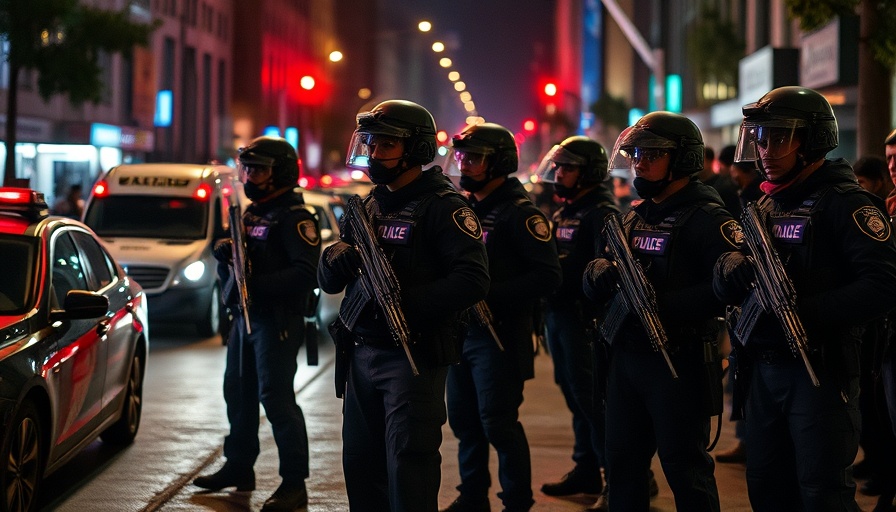
Escalating Tensions: National Guard Deployment in Response to Protests
As protests erupt across Los Angeles County, the Trump administration has decided to deploy the National Guard in an effort to restore order following a series of immigration raids conducted by federal agents. The decision, confirmed by Governor Gavin Newsom, comes as a direct response to the unrest sparked by the operations that resulted in over a hundred arrests.
What Sparked the Protests?
The protests began after ICE (Immigration and Customs Enforcement) conducted large-scale raids on Friday, where they arrested 121 immigrants in various locations across Los Angeles. The raids prompted public outcry, culminating in demonstrations in Paramount, California, where protesters accused federal agents of aggressive tactics and demanded an end to the operations. Reports indicate that law enforcement responded with tear gas, flash-bang grenades, and rubber bullets to quell the crowds, escalating the violence.
The Role of Federal Officials and Law Enforcement
Thomas D. Homan, the border czar under President Trump, has made it clear that immigration enforcement will continue unabated despite the protests. This has led to heightened tensions as officials have criticized the demonstrators, with some labeling the protests as an “insurrection.” This rhetoric could heighten animosity between federal officials and local communities, especially in immigrant-heavy areas.
Understanding the Broader Context
The recent events in Los Angeles should be viewed within a broader context of immigration policies that have polarized the nation. The ongoing conflicts between state and federal governments regarding immigration enforcement highlight the diverse opinions held by Americans on this complex issue. For many families, this greatly impacts their daily lives and raises fears about the safety of their loved ones.
Local Reactions and Public Sentiment
Many community leaders and local residents are alarmed by the escalation of federal presence, worrying that it signifies a disregard for the local sentiments surrounding immigration. Governor Newsom’s statement regarding the inflammatory nature of deploying National Guard troops resonates with many residents who see it as a threat rather than a solution.
Future Predictions: What Could This Mean?
The deployment of the National Guard may signal further crackdowns on immigration protests throughout the United States. Advocates for immigrants’ rights fear that this marks the beginning of a more aggressive federal stance, prompting communities to mobilize in defense of their residents. Alternatively, supporters of strict immigration enforcement see this as a necessary measure to maintain law and order. This fundamental disagreement points toward potential future tensions as localities grapple with differing visions of justice and security.
Addressing Common Misconceptions
Many Americans may believe that strict enforcement of immigration laws creates a more secure society, but research has shown that such approaches can lead to increased fear and reluctance among immigrant communities to report crimes or cooperate with local law enforcement. Moreover, strategies based solely on enforcement can deepen divides within communities rather than foster collaboration and understanding.
Take Action: Stand Up for Your Community
In light of these events, it is crucial for community members to engage in dialogues about their concerns and establish a united front to advocate for humane and just immigration policies. Citizens can start grassroots initiatives, join local advocacy groups, or even reach out to their elected officials to express their views. Understanding the implications of these ramifications is vital, particularly as they pertain to the broader questions of identity and belonging in America.
 Add Row
Add Row  Add
Add 




 Add Row
Add Row  Add
Add 

Write A Comment